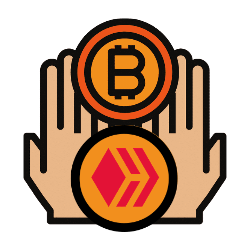"Follow your heart."
This is advice often given to kids in school when trying to decide on a field to pursue. Unfortunately, this is often misleading since often our heart does not pay the bills.
There is nothing wrong with the theater, for example. However, going $100K in debt to come out with a degree in that or ancient Irish poetry might cause some financial ramifications down the road. Sure, if one becomes the next Denzel Washington, no problem. That, of course, is not the norm.
If we step back, perhaps the advice wasn't the issue. Maybe it simply is the system we operate within. Our present structure does not allow, in most instances, for people to monetize their passions. We have things we enjoy doing, that is called leisure. This should be, we are taught, offset by work. Here is how we sustain ourselves.
For the majority, there is a clear line between work and leisure.

Source
Professionals
We esteem professionals. This is what society promotes. But what is a professional?
According to Merriam-Webster:
of, relating to, or characteristic of a profession
participating for gain or livelihood in an activity or field of endeavor often engaged in by amateurs
Here we see the two areas we tend to espouse. The first covers professions such as doctors, lawyers, and corporate executives. Individuals receive some training which enables them to engage in a particular field. This is commonplace.
The second is where things get interesting. It is where we see a few individuals who excel in ways most do not. This is where we find the professional ballplayers. Many partake in sports but only a miniscule number are good enough to get paid for it.
Going back to the theater major, we know that of all who go through school, only a very small percentage become film or television stars. The adage "starving actor" is true. That is how most end up.
Could this be changing? Is the line between leisure and work blurring? Might there be a time where one cannot be distinguished from the other?

Source
Web 3.0
The next evolution of the Internet is much bigger than just another advancement of our online world. It is going to completely upend some central parts of society.
We discussed a number of times how our entire economic framework is changing. This starts with the individual and can be honed down to the work/leisure paradigm. Web 3.0 is opening up the possibility that most people will blur this line in the future.
Basically, we are all professionals now. The onus is on us to decide what it is we want to pursue.
This is, naturally, not built out at the present moment. Web 3.0 is only getting started. It will take years before most topics of interest are covered. However, when we look into our crystal balls, we can see how some of this is going to unfold.
The hot topic, at the moment, is the #Play2Earn model. This is another field that is just developing yet holds enormous potential. We can easily see how, through the use of tokenization, people can get rewarded for playing game. While this did exist to a small degree, it was akin to the pro athlete or star actor, few and far between.
Web 3.0 has the potential to change that.

Source
Redistribution of Value
We know there is a lot of value in enterprises. The gaming industry, as an example, is worth a fortune. Estimates vary but it is easily into the tens of billions of dollars per year (some place the revenues from global gaming into the hundreds of billions).
In spite of the enormous sums, how many actually benefit financially? The answer is very few. These major corporations rake in the cash for their executives and shareholders with the players getting nothing. In fact, in many instances, they have to pay, even under the free model.
The value all of this creates is astonishing. Web 3.0 is promising to distribute that value to those who have stake in the particular game. This includes, first and foremost, the players. They are the ones at the forefront. In-game assets are acquired through activity as well as purchase. The users becomes the investors.
It is in this regard that gamers can instantly become professionals.
Of course, this is not the only sector that it is limited to. We all heard about those people who spend 5-7 hours a day on Facebook. What do they get out of it financially? Unless they are a shareholder, the answer is nothing.
Here again, Web 3.0 is looking to alter that model. Through the tokenization of content, we can see average individuals earning almost immediately. One does not have to be a major YouTube star to profit.
Social media is going to change over the next few years. No longer is it going to be a situation where the users are the product. This might hang around for a while but, eventually, the masses will see the benefit to the new system.
The future is turning the average person into a professional. Regardless of what the area of interest, one is going to be able to profit from it. This is going to take the work/leisure paradigm and turn it upside down. The two will merge where people get paid for doing everyday things that now are done for free.
Hence, every field that is now frequented by "amateurs" will be filled with professionals. We are going to be paid for (fill in the blank).
This is one of the major components of Web 3.0.
If you found this article informative, please give an upvote and rehive.

gif by @doze

logo by @st8z
Posted Using LeoFinance Beta



 . Keep up the fantastic work
. Keep up the fantastic work